Along with the challenges that new waves of pathogens may cause, modern humans are quite good at producing complicated messes and then needing to apply our resources and innovation, reacting to what we’ve brought about. I ponder this after researching an acronym I learned from recent ABC and BCA announcements-BARDA (Biomedical Advanced Research and Development Authority).
BARDA was established in December 2006 as part of the Department of Health and Human Service’s Pandemic and All-Hazards Preparedness Act (PAHPA). BARDA works collaboratively with CDC, the Food and Drug Administration (FDA), the National Institutes of Health, the Department of Homeland Security, as well as the Department of Defense. BARDA’s director and seven divisions promote and guide the development of countermeasures to mitigate whatever bad muck comes our way-rampant viruses, or doomsday technology. There is even a “matrix team” to coordinate among the divisions. The matrix team’s mission is to develop and procure needed medical countermeasures, e.g., to assure vaccine manufacturing surge capacity, retrofit therapeutic manufacturers’ facilities, develop diagnostics, and battle the array of public health threats that will arise-natural or not. BARDA was intended to fill gaps in the U.S. government’s development and procurement processes and be a bridge for novel products identified in early research to obtain FDA licensure/approval. BARDA guesses “winners” and helps them advance through the pipeline so they can help save us all.
BARDA has awarded millions to over 240 projects, many of them addressing pandemic and biological concerns, like developing influenza vaccines, thwarting Ebola, advancing infrastructure to deal with pandemics, and covering nuclear and radiological threats.
Two companies involved in the blood supply chain have received BARDA money-TerumoBCT and Cerus Corporation. Terumo was recently awarded an initial $17.4 million to support efforts to get their Mirasol pathogen-reduced platelets approved by the FDA. Cerus was given an initial $30.7 million to establish the efficacy of INTERCEPT RBC. Both companies have pathways to additional BARDA money in the near future for related projects. These companies caught the government’s attention for their successes in Europe with pathogen reduction, their contributions to help Puerto Rico respond to threats from Zika and Chikungunya, and their efforts to secure FDA approval for their blood safety technology. I congratulate these two innovative companies for their focus on emerging medical countermeasuresin our blood supply chain.
Chris Staub, MT(ASCP) SBB, Board Member; cstaub@donateblood.org
